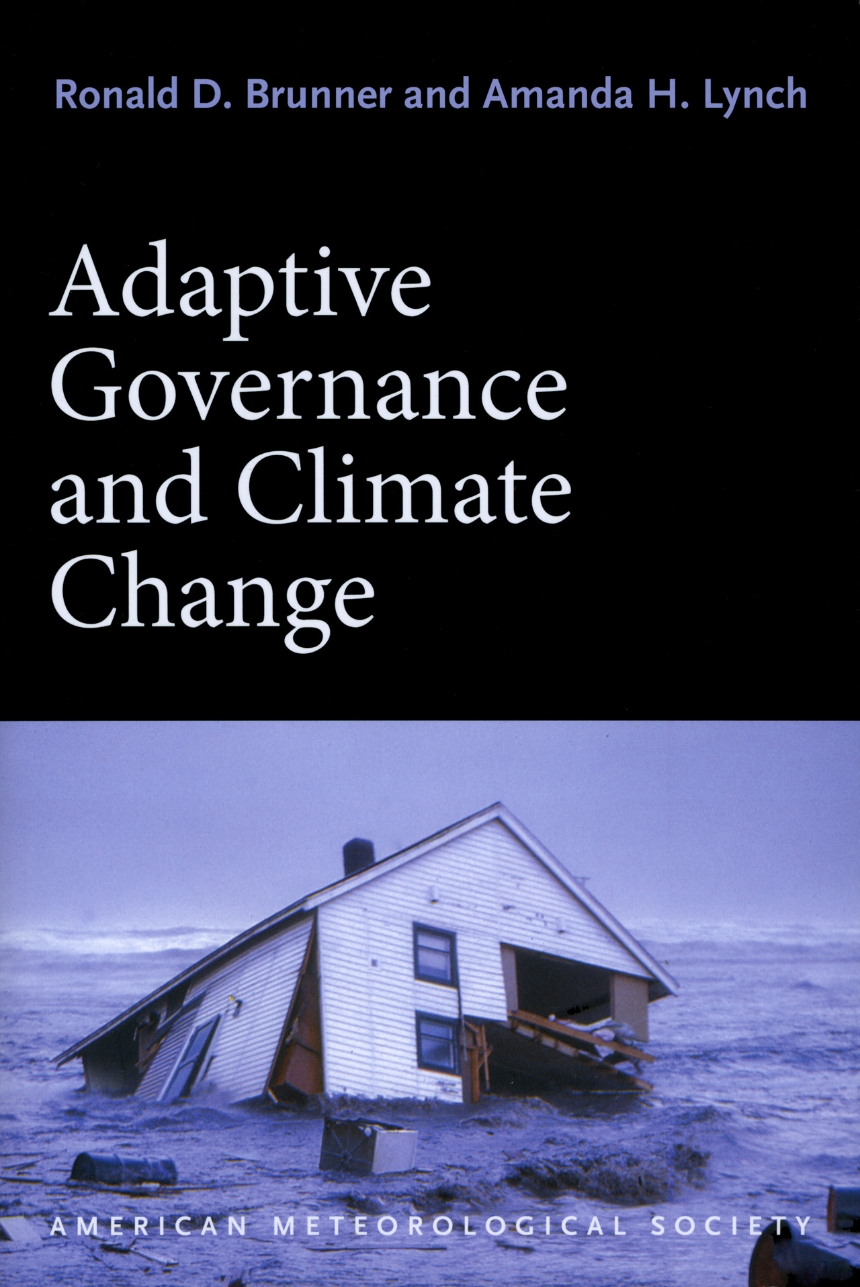Distributed for American Meteorological Society
Adaptive Governance and Climate Change
While recent years have seen undeniable progress in international acknowledgement both of the dangers of climate change and the importance of working to mitigate it, little has actually been done. Emissions continue to rise, and even the ambitious targets set by international accords would fall far short of the drastic cuts that are needed to prevent catastrophe.
With Adaptive Governance and Climate Change, Ronald D. Brunner and Amanda H. Lynch argue that we need to take a new tack, moving away from reliance on centralized, top-down approaches—the treaties and accords that have proved disappointingly ineffective thus far—and towards a more flexible, multi-level approach. Based in the principles of adaptive governance—which are designed to produce programs that adapt quickly and easily to new information and experimental results—such an approach would encourage diversity and innovation in the search for solutions, while at the same time pointedly recasting the problem as one in which every culture and community around the world has an inherent interest.
Reviews
Table of Contents
Preface
Acknowledgements
Acronyms
Boxes and Figures
1 Clarifying the Problem
An Appraisal
Constructing the Context
The Common Interest
2 The Regime Evolves
Science
Policy and Decision Making
Exceptions
3 Barrow as Microcosm
Historical Contexts
Vulnerabilities
Policy Responses
4 Opening the Regime
Intensive Inquiry
Procedurally Rational Policy
Decentralized Decision Making
5 Reframing the Context
Next Steps
Relevant Past
Possible Futures
Notes
Index

